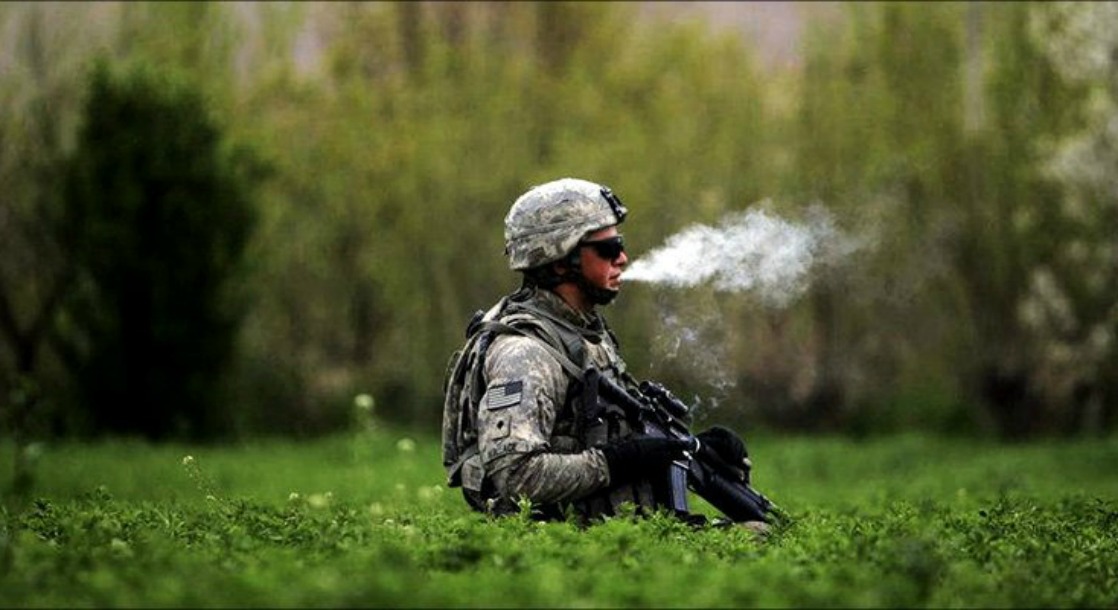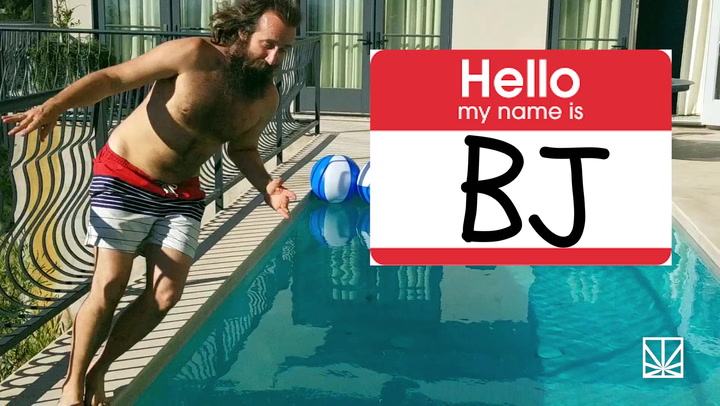Roberto Pickering came back from war debilitated. The ex-marine sniper was diagnosed with severe PTSD when he returned home in 2004, and has spent the past 13 years learning how to cope. Now, with the help of yoga, buddhism, nutrition, and cannabis, Pickering has created the Battlefield Foundation, a non-profit organization that connects veterans with the cannabis industry and researchers studying marijuana and post-traumatic-stress-disorder.
"Vets are coming back from war, and now they have a war here in America to fight. The enemy is suicide and an opioid epidemic, and these guys are getting healed in the very industry that's eliminating that," Pickering told the LA Weekly in a recent interview. "They're finding themselves through employment, finding confidence again, contributing to a greater plant that's helping end the opioid epidemic in this country."
Pickering started the Battlefield Foundation after teaming up with Dr. Sue Sisley, who you might remember from the Arizona based PTSD study that exposed the government’s shoddy cultivation skills. The pair has since set up a registered 501(c)(3) with a three-tiered approach to helping vets.
The Foundation’s first goal is to simply be there for veterans in need of physical or emotional support, or what Pickering calls the “big brother” program. Next, the group will explicitly offer non-opiate medications, including cannabis, with the aim of helping veterans avoid becoming victims the nation’s opioid epidemic. The final prong is helping those same veterans find employment in the cannabis industry.
Sisley and Pickering applied for a federal license to grow their own cannabis after seeing the government’s samples, but have yet to receive a response from the DEA. In the meantime, Sisley is still performing her study with veterans using the government dirt weed and collecting anecdotal evidence about the higher-grade cannabis that veterans have been using outside of the DEA sanctioned study.
But while research is still hampered by federal prohibition, the economic goals of the Battlefield Foundation are in lockstep with the exploding cannabis industry in legal-weed states like Pickering’s home state of California.
"The cannabis industry is such a forgiving, second-chance industry," Pickering told the LA Weekly. "You can be an ex-felon, a guy who's struggling with PTSD. It gives them a sense of purpose, a place in the world they can be passionate about, and a meaningful paycheck to feel whole again and to really have a sustainable recovery process."
Like felons, veterans often face a difficult time returning to work in mainstream society after life on the outside. Thankfully, the cannabis industry is not the same as other businesses, and with support structures like the Battlefield Foundation, veterans around the country can find gainful employment and peace of mind thanks to legal weed.





![Snoop Dogg Plays Madden 20 in the GGL V Championship presented by Blue River Terps [Part 3]](https://merryjane.com/wp-content/uploads/2024/04/1575574102128_PART3Thumbnail.jpg)





